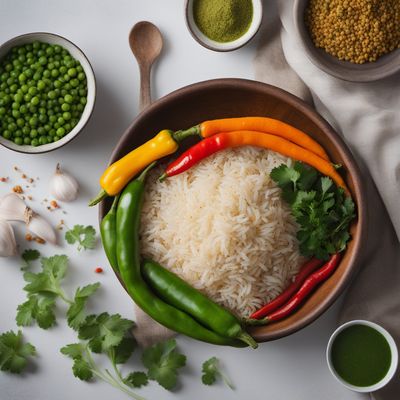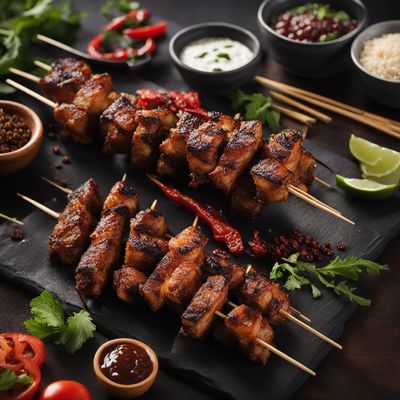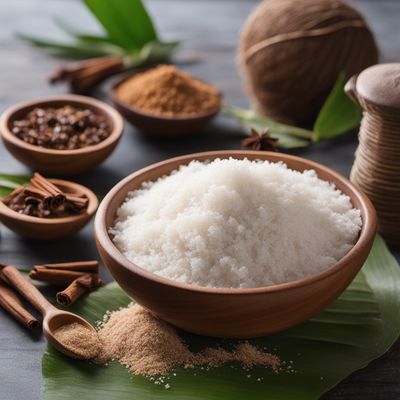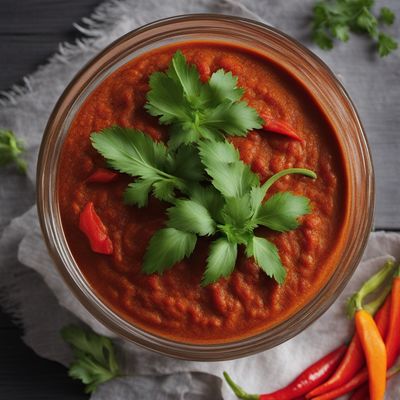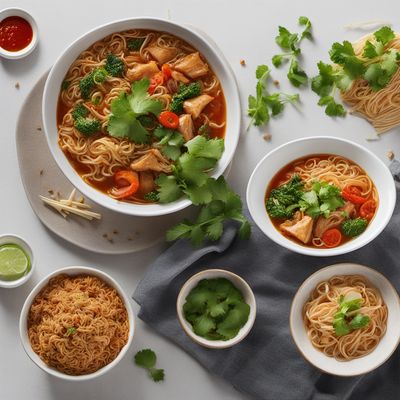
Recipe
Coconut Rice with Indian Chinese Twist
Indo-Chinese Coconut Rice: A Fusion Delight
4.4 out of 5
Indulge in the flavors of Indian Chinese cuisine with this delectable twist on the classic Tanzanian dish, Wali wa nazi. This fusion recipe combines the creamy goodness of coconut rice with the bold and vibrant flavors of Indian Chinese cuisine.
Metadata
Preparation time
20 minutes
Cooking time
20 minutes
Total time
40 minutes
Yields
4 servings
Preparation difficulty
Easy
Suitable for
Vegetarian, Vegan, Gluten-free, Dairy-free, Nut-free
Allergens
Soy
Not suitable for
Paleo, Keto, Low-carb, High-protein, Atkins
Ingredients
While the original Wali wa nazi is a coconut rice dish from Tanzania, this adaptation takes inspiration from Indian Chinese cuisine. The addition of Indian Chinese flavors such as soy sauce and spices like ginger and garlic gives the dish a unique twist. The use of colorful vegetables adds vibrancy and texture to the rice, making it a visually appealing and flavorful fusion dish. We alse have the original recipe for Wali wa nazi, so you can check it out.
-
2 cups (400g) basmati rice 2 cups (400g) basmati rice
-
1 can (400ml) coconut milk 1 can (400ml) coconut milk
-
1 tablespoon vegetable oil 1 tablespoon vegetable oil
-
1 onion, finely chopped 1 onion, finely chopped
-
2 cloves of garlic, minced 2 cloves of garlic, minced
-
1-inch piece of ginger, grated 1-inch piece of ginger, grated
-
1 carrot, julienned 1 carrot, julienned
-
1 bell pepper, thinly sliced 1 bell pepper, thinly sliced
-
1 cup (150g) frozen peas 1 cup (150g) frozen peas
-
2 tablespoons soy sauce 2 tablespoons soy sauce
-
1 teaspoon chili sauce (optional) 1 teaspoon chili sauce (optional)
-
Salt to taste Salt to taste
-
Fresh cilantro, for garnish Fresh cilantro, for garnish
Nutrition
- Calories (kcal / KJ): 350 kcal / 1465 KJ
- Fat (total, saturated): 12g, 10g
- Carbohydrates (total, sugars): 52g, 4g
- Protein: 6g
- Fiber: 3g
- Salt: 1.5g
Preparation
-
1.Rinse the basmati rice under cold water until the water runs clear. Drain and set aside.
-
2.In a large saucepan, heat the vegetable oil over medium heat. Add the chopped onion and sauté until translucent.
-
3.Add the minced garlic and grated ginger to the pan and cook for another minute until fragrant.
-
4.Add the julienned carrot, sliced bell pepper, and frozen peas to the pan. Stir-fry for a few minutes until the vegetables are slightly tender.
-
5.Add the rinsed basmati rice to the pan and stir well to coat the grains with the vegetable mixture.
-
6.Pour in the coconut milk and add the soy sauce and chili sauce (if using). Season with salt to taste.
-
7.Bring the mixture to a boil, then reduce the heat to low. Cover the pan and let the rice simmer for about 15-20 minutes, or until the rice is cooked and the liquid is absorbed.
-
8.Once the rice is cooked, fluff it with a fork and garnish with fresh cilantro.
-
9.Serve the Indo-Chinese Coconut Rice hot as a main dish or as a side with your favorite Indo-Chinese dishes.
Treat your ingredients with care...
- Basmati rice — Rinse the rice thoroughly to remove excess starch and achieve fluffy grains.
- Coconut milk — Shake the can well before using to ensure the cream and liquid are well combined.
- Soy sauce — Use low-sodium soy sauce if you prefer a less salty flavor.
Tips & Tricks
- For added flavor, you can sauté the rice in a little oil before adding the coconut milk.
- Customize the spiciness by adjusting the amount of chili sauce according to your taste preference.
- Feel free to add other vegetables like mushrooms or baby corn for extra variety.
- To make it a complete meal, serve the Indo-Chinese Coconut Rice with a side of Manchurian or Chili Paneer.
- Leftover rice can be transformed into delicious fried rice by stir-frying it with some additional vegetables and soy sauce.
Serving advice
Serve the Indo-Chinese Coconut Rice as a main dish accompanied by a fresh cucumber salad or raita. It can also be served as a side dish alongside your favorite Indo-Chinese entrees.
Presentation advice
Garnish the rice with a sprinkle of fresh cilantro and serve it in a vibrant bowl or on a decorative platter to enhance its visual appeal. Pair it with colorful side dishes to create an enticing and appetizing presentation.
More recipes...
For Wali wa nazi
For Tanzanian cuisine » Browse all
More Tanzanian cuisine dishes » Browse all

Chipsi mayai
French fries omelette
Chipsi mayai is a popular street food in Tanzania, East Africa. It is a combination of French fries and an omelette, and is typically served with...

Ndizi kaanga
Fried Plantains
Ndizi kaanga is a popular Tanzanian dish that is made with fried plantains. It is a sweet and savory dish that is perfect for breakfast or as a snack.

Mishkak
Grilled meat skewers
Mishkak is a popular street food in Pakistan, consisting of marinated and grilled meat skewers. It is a flavorful and spicy dish that is perfect...
